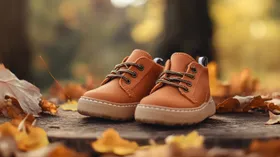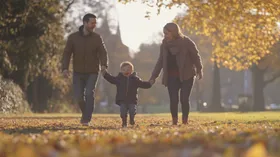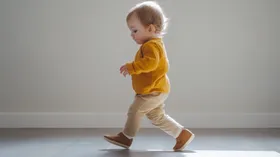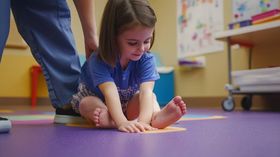7 Things to Think About When Buying Orthopaedic Shoes for Kids
Published April 10, 2024.
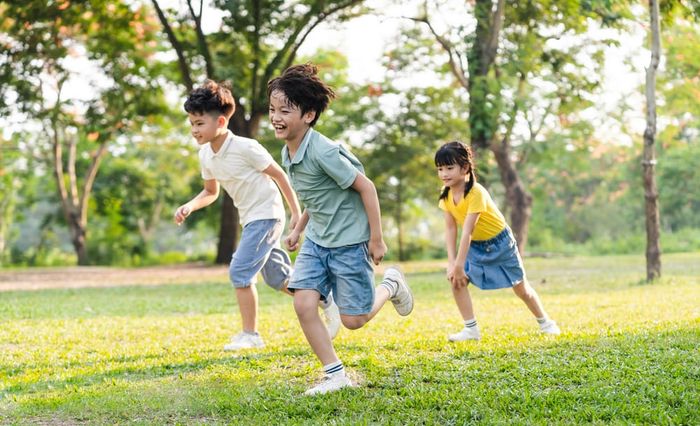
If your child has complained about foot and leg pain, you may have been recommended orthopaedic shoes by their doctor or other moms.
But what exactly are orthopaedic shoes, and what do you need to think about when buying them for the first time?
What Are Orthopaedic Shoes for Kids?
First, orthopaedic shoes for kids are specially designed to support the foot, ankle, and leg.
The word "orthopaedic" itself is formed from two Greek roots:
- "Ortho" means correct.
- "Paedic" means foot.
In general, orthopaedic shoes can help treat and prevent specific issues your little one may be experiencing. These may include:
- Overpronation, where the foot rolls inwards as they move
- Rolled ankles, where a sprain occurs on either side of the ankle
- Knock knees, where the knees tilt inwards even though the ankles stay apart
- Low muscle tone, where the muscles are floppy, and it's challenging to maintain good posture while sitting or standing
- Flat feet, where the arches in the foot are very low or non-existent
For example, providing the best shoes for kids with flat feet or a similar condition can help them walk and run straighter and improve their overall posture. Orthopaedic shoes tend to be made with extra depth in the shoebox and additional padding to assist those with an abnormal gait as well.
Orthopaedic Shoes Benefits
There are many benefits of orthopaedic shoes for kids.
Sole Cushioning
The midsoles of pediatric orthopedic shoes are lightweight with a mild rocker-bottom design. They provide cushioning to soften the impact and aid the alignment of the foot when it touches the ground. These unique soles are also wide, enabling mobility and stability while walking.
Arch Support
Orthopaedic shoes are the best arch support shoes for kids because of their orthotic insoles. Proper insoles eliminate excessive pronation, which is the primary cause of foot and heel pain.
Orthotic insoles alleviate stress on the knees, hips, and lower back and reduce pressure on the ball of the foot and heel. How? Well, they transfer some of your child's body weight to the arch, which improves both foot and leg alignment.
Extra Depth and Width
Most orthopedic shoes for children are made in a range of widths to provide a precise fit, such as medium, wide, and extra-wide. Likewise, they are constructed with extra depth to accommodate thick insoles. The idea is to offer a loose, comfortable fit to remove pressure points on foot.
Wide Toe Box and Stretchable Uppers
Orthopaedic supportive shoes for kids feature both a wide toe box and stretchable upper design for two reasons:
- To relieve pressure for bunions and hammertoes
- To allow extra room for toe movement
In essence, preventing any tightness or discomfort in these shoe sections allows for a better fit which helps in avoiding toe injury and preventing ingrown toenails.
Protective Interior
The majority of orthopedic children shoes are manufactured with a soft, smooth interior. This is designed to be gentle when making contact with the foot to eliminate pressure points.
A Guide to Buying Orthopaedic Shoes for Kids
Having to buy orthopaedic shoes for kids for the first time may feel overwhelming. However, you can follow the below steps to ensure that the process runs smoothly.
1. Consider the Season
Ask yourself what time of year it is and determine what type of shoe to get for this season.
Boots will be more practical for your little one in winter, mainly because small feet need protection from rain and snow. Plus, tiny toes need to be kept warm in sub-zero temperatures!
We love these Mountain Toby cognac orthopedic boots for children who are masculine, alongside these Midnight Chrysalis black orthopedic boots for kids who are feminine.
Similarly, orthotic sandals for kids are both functional and stylish if you're heading into summer. Your child's feet need to be able to breathe as the weather gets warmer.
These Sapphire Angelique closed-toe arch support sandals for kids are a handy option. Likewise, these Nick B. Hardy open-toe children's sandals with arch support go one step further in terms of breathability.
2. Remember the Occasion
Are you looking for kids orthopedic shoes for something specific, such as their sibling's birthday party? Or do you want them to wear something a bit more casual for all-day play?
Either way, we're a fan of orthopedic shoes for kids that you dress up or down for any occasion, such as these Blooming Dahlia rose gold orthopedic shoes for girls. Alternatively, how adorable are these Luigi Brighti light grey orthopedic shoes for boys?
It just shows that opting for orthopedic shoes for your kids doesn't necessarily mean that you have to compromise on style. Many footwear brands are orthopedic and still adhere to the latest trends.
3. Find a Design That They Like
Let's face it: just because you like a particular shoe doesn't mean that your child will like it. That's why it's important to consult them when buying new orthopedic shoes for toddlers, babies, or juniors.
Is your little one really into transportation at the moment? Or are they obsessed with anything sparkly?
Well, the good news is, we can cater for both of these passions with the following designs:
Don't forget to consider colour. Studies show that young children prefer particular hues such as blue, red, purple and orange over muted tones.
It's essential to invest in something that your little one is excited to wear once and time and time again.
4. Consider the Materials
As well as how they look and feel, consider how orthopedic shoes will perform for your kids. Will they last? Are they easy to keep clean?
Leather options, for example, can just be wiped clean in one swipe of a cloth. They're also super durable.
5. Check the Price
Full disclosure: corrective shoes for toddlers, babies, or juniors are known to be pretty pricey. After all, you get what you pay for.
That said, while the cost of orthopaedic footwear may be high, you have to consider the potential costs of not providing footwear that will ease your little one's issues. You could risk worsening their symptoms—and condition in general.
The great thing about orthopaedic shoes for kids is that they're an investment that will last for seasons to come. Buy within your means, but also keep in mind that the benefits for your kid's posture, feet, ankles, legs, and gait are endless!
6. Make Sure They Fit Properly
Orthopaedics shoes for kids are the most beneficial when they fit correctly. Therefore, make sure your child tries on any shoe that you're both interested in buying.
If trying to do this in a store proves too much of a mission, you can always purchase online instead. Either way, here are some top tips for trying on orthopaedic shoes for kids:
- Measure your little one's feet and get them to try the shoe that seems to align with this measurement
- Get them to put on the same type of socks that they intend to wear with the new shoes
- Ask them to stand and walk around in the shoes to determine how they feel
- Make sure the shoes fit from the very beginning—avoid buying shoes that may stretch in time (they may not)
- Examine the soles before your child walks around in the shoes. Do they seem to cushion against impact?
- Ask them to walk around on a hard surface and examine the soles afterwards.
Oh, and don't be afraid to ask for help from the store assistant or a loved one if you need it.
7. Allow Growing Room
Lastly, remember that comfort should come first when buying orthopedic shoes for kids. If your little one seems uncomfortable when trying on a new pair of shoes, then don't buy them.
Above all, make sure they're not too tight and restrict mobility. Shoes should have a little bit of growing room to allow for foot swelling after activity or during hot weather.
The Takeaway
Corrective shoes for kids are a crucial investment to support healthy feet, ankles and legs and ultimately prevent or treat walking conditions.
When buying children's orthopedic shoes, take your time to ensure that you find a pair that meets every need in terms of fashion and function.

